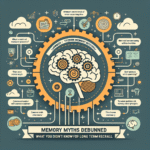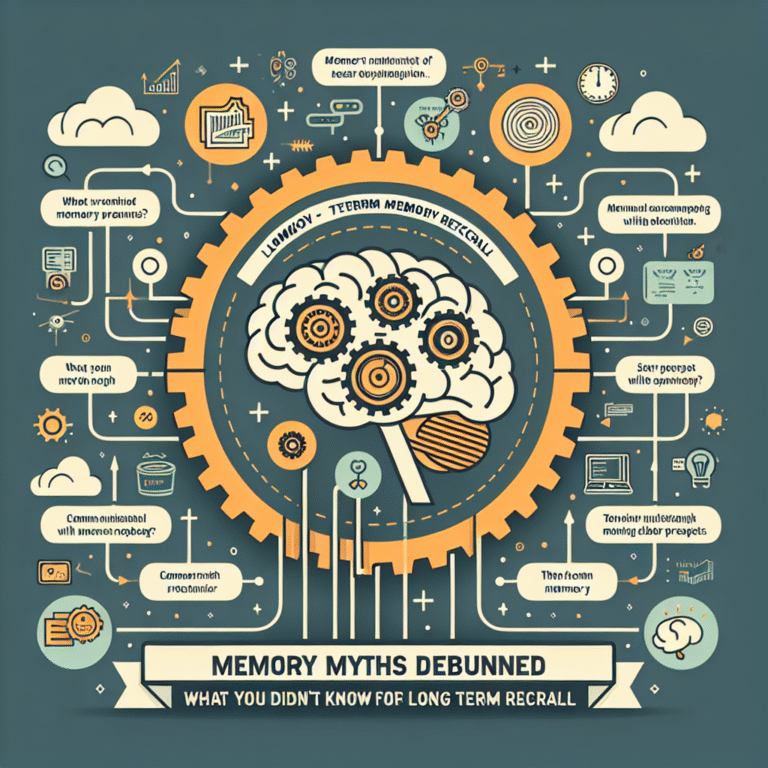
Introduction
Have you ever wondered why some individuals bounce back from adversity more swiftly than others? What hidden mechanisms enable certain people to maintain their mental health and positivity even in the face of life’s challenges? The answer may lie in what is known as emotional processing. In this article, we will delve into The Role of Emotional Processing in Resilience and Well-Being, illustrating how our ability to understand, express, and manage emotions deeply impacts our resilience and overall well-being.
In a world perpetually spinning with stressors—ranging from personal loss to professional setbacks—the ability to process emotions can mean the difference between thriving and merely surviving. Emotional processing significantly shapes our resilience and well-being, helping us navigate life’s tumultuous waters.
Understanding Emotional Processing
What Is Emotional Processing?
Emotional processing refers to the ability to recognize, evaluate, and regulate one’s emotional responses to various situations. This pivotal skill includes understanding the origins of feelings, acknowledging emotional experiences, and ultimately finding constructive ways to respond to those feelings.
The Science Behind Emotional Processing
Research indicates that effective emotional processing is linked to lower levels of anxiety, depression, and emotional dysregulation. For instance, studies published in journals like Emotion and Journal of Personality and Social Psychology have consistently highlighted how emotional processing influences one’s cognitive appraisal and coping mechanisms during stressful events.
Key Components of Emotional Processing
- Emotional Awareness: Recognizing and understanding one’s emotions.
- Expression: Communicating emotions effectively.
- Regulation: Modulating emotional responses to align them with situational demands.
The Intersection of Emotional Processing and Resilience
Resilience Defined
Resilience is the capacity to recover quickly from difficulties and adapt successfully to stress. The concept is often depicted as a process, not a trait, involving interaction between personal resilience and environmental factors.
How Emotional Processing Fosters Resilience
One of the most compelling aspects of emotional processing is its direct correlation with resilience. Individuals who can process their emotions effectively often find it easier to adapt to challenges and setbacks. Here are several ways emotional processing cultivates resilience:
- Enhanced Coping Strategies: By understanding their emotions, individuals can develop and implement healthier coping strategies.
- Fostering Relationships: Emotional processors can communicate their feelings, enhancing their social connections, which are crucial for resilience.
- Promoting Self-Efficacy: Recognizing and managing emotions enhances self-efficacy, empowering individuals to tackle obstacles head-on.
Case Study: A Veteran’s Emotional Journey
One compelling case study involves a military veteran who struggled with PTSD after returning from deployment. Through therapy focusing on emotional processing, he learned to articulate his feelings instead of suppressing them. Over time, this led to improved social connections and a significantly greater sense of control over his life—a clear demonstration of The Role of Emotional Processing in Resilience and Well-Being.
Analysis
This case demonstrates how emotional processing not only enabled the veteran to confront his past but also allowed him to forge a path forward. It underscores the idea that addressing emotions is not a weakness; it’s a cornerstone of resilient living.
Emotional Processing and Well-Being
The Link Between Emotional Processing and Mental Health
Mental health is intricately linked to the way we process our emotions. When individuals engage in effective emotional processing, they tend to experience lower rates of depression and anxiety. Furthermore, they are more likely to report higher life satisfaction, as illustrated by various psychological studies.
Emotional Intelligence and Well-Being
Emotional Intelligence (EI) plays a vital role here. EI encompasses the ability to understand one’s own emotions as well as those of others. High EI often correlates with better mental health and thriving relationships. Practically, this means that individuals with high emotional intelligence can navigate their feelings and those of others more effectively, leading to better interpersonal dynamics.
Case Study: The Educator’s Approach to Emotional Learning
Consider a high school teacher who implemented an emotional learning curriculum. By fostering an environment where students felt safe to express their feelings, the teacher saw a noticeable decline in conflict among peers and an increase in overall student well-being. This initiative illustrates how one can cultivate The Role of Emotional Processing in Resilience and Well-Being within a community setting.
Analysis
The teacher’s approach underscores the idea that emotional processing isn’t confined to individuals; it can influence entire social environments. It emphasizes resilience not only on a personal level but on a community scale as well.
Strategies for Enhancing Emotional Processing
- Mindfulness Practices: Engaging in mindfulness meditation trains the mind to become more aware of emotional stimuli.
- Journaling: Writing about one’s feelings provides an avenue for reflection and clarification.
- Therapy: Cognitive Behavioral Therapy (CBT) is particularly effective for teaching emotional processing skills.
- Social Support: Encouraging open dialogues about emotions can foster interpersonal understanding and support.
Table: Strategies to Enhance Emotional Processing
| Strategy | Description | Benefits |
|---|---|---|
| Mindfulness Practices | Meditation, breathing exercises | Increases emotional awareness |
| Journaling | Writing daily feelings and thoughts | Aids in reflection and clarity |
| Therapy | Professional guidance in processing emotions | Teaches coping strategies |
| Social Support | Engaging in open conversations with trusted individuals | Builds connections and trust |
Conclusion
In conclusion, understanding The Role of Emotional Processing in Resilience and Well-Being is pivotal for anyone wishing to navigate the intricacies of life more effectively. By learning to recognize, express, and regulate our emotional experiences, we foster resilience and improve our overall mental health.
The journey toward enhanced emotional processing is one filled with opportunities for growth. Whether through mindfulness, therapy, or supportive relationships, each step taken towards embracing emotions equips us to face challenges head-on and cultivates a more resilient individual.
Motivational Takeaway
So, if you’re feeling overwhelmed, remember: emotional processing is not just a skill; it is a powerful tool that can transform your life. Embrace your feelings, and watch how it opens new pathways to resilience and well-being.
FAQs
What is emotional processing?
- Emotional processing is the ability to recognize, evaluate, and manage emotions effectively.
How does emotional processing relate to resilience?
- Emotional processing helps individuals develop coping strategies, enhance relationships, and foster self-efficacy, all of which contribute to greater resilience.
Can anyone improve their emotional processing skills?
- Yes, with the right tools and practices—like therapy, mindfulness, and journaling—individuals can improve their emotional processing skills.
What role does emotional intelligence play?
- Higher emotional intelligence allows individuals to understand and manage their emotions and those of others, enhancing both resilience and well-being.
- How can I start enhancing my emotional processing today?
- Begin by practicing mindfulness, journaling your emotions, or talking openly with friends or family members about your feelings.
By focusing on emotional processing, you not only enhance your own resilience but also create an atmosphere of understanding and support in your community. Embrace your emotional journey, and discover the strength it provides.
















